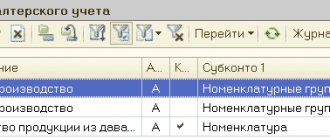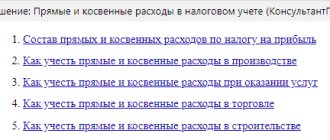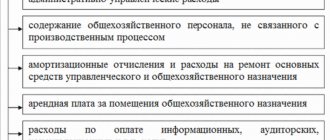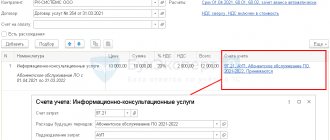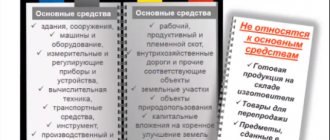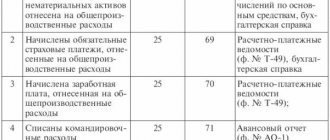| A busy schedule prevents you from attending professional development events? We found a way out! |
Consultation provided 06/09/2015
The school (budgetary institution) transfers the premises to the canteen (commercial organization) for free use. The school submits canteen bills for payment for the actual consumption of water supply and sanitation necessary to ensure the technological process of cooking or maintaining the temperature of hot dishes not lower than the serving temperature, for the consumption of thermal energy consumed in the premises used for storing food and preparing food, utility rooms in according to the occupied area. The school then pays this amount to utility organizations (Vodokanal, Territorial Generating Company).
Should the amount that the canteen reimburses the school for the use of utilities be reflected in the income tax return?
On this issue we take the following position:
In the situation under consideration, the amount of reimbursement for utility expenses is included in non-operating income. In this case, the costs of paying for utilities can be taken into account when calculating the tax base.
Justification for the position:
List of expenses under the simplified tax system “income minus expenses”
Expenses under the simplified tax system - income minus expenses are subject to the requirements set out in Chapter.
26.2 “STS”, a number of which refer to the provisions of Chapter. 25 “Profit Tax” of the Tax Code of the Russian Federation. Let's consider the list of expenses of the simplified tax system, as well as the features of their recognition. List of expenses under the simplified tax system for 2021 - 2021
Rates according to the simplified tax system - 6 or 15%
Recognition of material expenses under the simplified tax system, as well as other types of expenses
Expenses that cannot be taken into account under the simplified tax system “income minus expenses”
What to do if expenses exceed income under the simplified tax system?
Filling out a declaration under the simplified tax system
Results
List of expenses under the simplified tax system for 2021 - 2021
Taking into account the requirements of the norms of Ch. 26.2 of the Tax Code of the Russian Federation, the object for calculating tax under the special regime in question must be determined in one of 2 ways:
- income;
- income minus expenses.
For the first method, the issue of expenses for tax purposes does not matter, but for the second it plays a very important role.
For information on how to change the object of taxation using the simplified tax system, read the article “The procedure for changing the object of taxation under the simplified taxation system “income”” .
Clause 1 Art. 346.16 of the Tax Code of the Russian Federation identifies the following expenses under the simplified tax system - income minus expenses:
- costs for the purchase, production and installation of fixed assets;
Read about the procedure for writing off fixed assets for expenses under the simplified tax system here.
- costs of purchasing intangible assets;
- costs for the purchase of exclusive rights, know-how, intellectual property;
- costs incurred in obtaining patents;
- costs associated with R&D;
- costs of repairing and improving fixed assets - both own and leased;
- expenses incurred under lease agreements;
- material costs;
- labor costs;
- costs for all types of compulsory insurance (pension, social, medical, life insurance);
- expenses related to payment for services provided by credit institutions;
What services provided by credit institutions can be taken into account in expenses under the simplified tax system, read the article “Accounting (nuances)”.
- costs in the form of input VAT amounts;
Read about the reflection of VAT under the simplified tax system here and in the material “How to take into account input VAT under the simplified tax system?”.
- costs aimed at paying customs duties;
- expenses associated with business trips (payment for travel to the place of performance of an official assignment and back, payment for accommodation, daily allowance);
- costs of accounting, auditing, legal and other similar services, including accounting services ;
Is it possible to take into account consulting costs under the simplified tax system, find out from the material “Consulting costs under the simplified tax system, income minus expenses”
- costs of training and retraining of personnel;
Can participation in a conference be considered expenses for training and retraining of personnel? Find out from the publication “Participation of employees in conferences - an expense under the simplified tax system?”
- stationery costs;
- costs for postal, telephone and other office services.
A detailed list of expenses under the simplified tax system is given in Art. 346.16 Tax Code of the Russian Federation. It is closed, that is, other expenses that are not indicated in this list cannot reduce the tax base under the simplified tax system.
To learn about the requirements for expenses taken into account under the simplified tax system, read the article “Accounting for expenses under the simplified tax system with the object “income minus expenses”” .
Rates according to the simplified tax system - 6 or 15%
According to Art. 345.20 of the Tax Code of the Russian Federation, when using the “income” object to calculate the single tax, a rate of 6% is provided, which from 2021 in the regions can be reduced to 1%. For the object “income minus expenses”, taking into account the type of activity of the taxpayer, the tax rate can vary from 5 to 15%.
For information on how to choose a rate from several preferential ones available for use, read the material “When you can choose a rate for the “income-expenditure” simplified tax system .
Features of the recognition and assessment of expenses for a specific type of activity are given in the accounting policy.
Important! All expenses that reduce the tax base under the simplified tax system “income minus expenses” must be documented and economically justified (clause 2 of article 346.16, clause 1 of article 252 of the Tax Code of the Russian Federation).
Recognition of material expenses under the simplified tax system, as well as other types of expenses
Clause 2 art. 346.17 of the Tax Code of the Russian Federation defines the following points for the recognition of expenses by an organization or individual entrepreneur under the simplified tax system - income minus expenses:
1. Material expenses are accepted on the date of payment of the debt in one of the following ways:
- transfer of funds from the taxpayer’s current account;
- issuing funds from the cash register;
- any other way of repaying the debt.
Such expenses of the simplified tax system, the list of which is determined taking into account the requirements of Chapter. 25 of the Tax Code of the Russian Federation, include:
- purchase of raw materials, including those used for technological purposes;
- purchase of various types of equipment and other household supplies;
- purchase of components, semi-finished products;
- procurement of works and services involved in the production process;
- use of fixed assets and other property related to environmental activities.
2. Expenses incurred in connection with calculations for wages under the simplified tax system are recognized in the same manner as material expenses.
Regarding the list of simplified taxation system expenses related to payment for work activities, you should also be guided by the provisions of Chapter. 25 Tax Code of the Russian Federation. These costs include:
- payment of wages to employees;
- bonuses and other incentive payments;
- the cost of utilities, food and products provided to employees free of charge;
- expenses for the purchase and production of uniforms for employees, which are given to them free of charge or sold to them at a reduced price.
A complete list of labor costs is contained in Art. 255 Tax Code of the Russian Federation.
3. Expenses for payment of the cost of goods that were purchased for the purpose of further sale are accepted as they are sold.
Read more about accounting for the write-off of goods when applying the simplified tax system here.
4. Other features of recognizing expenses are as follows:
- tax expenses are written off based on the date of actual payment of taxes;
- expenses for fixed assets and intangible assets are recognized at the end of the tax period in the amount of amounts paid;
See here .
- when paying by bill of exchange, expenses are taken into account on the date of payment of the bill of exchange, however, if the bill of exchange is transferred in favor of third parties, then the date of recognition of the expense corresponds to the moment of its transfer.
Simplified people keep records of income and expenses in KUDIR. We described in this article how to fill out a book using the new form.
Expenses that cannot be taken into account under the simplified tax system “income minus expenses”
A list of some types of expenses that, according to officials, do not reduce the tax base under the simplified tax system “income minus expenses” is presented in the table.
| Expenses that do not reduce the tax base under the simplified tax system “income minus expenses” | Rationale |
| Advance payments (prepayment) |
Source: https://nalog-nalog.ru/usn/dohody_minus_rashody_usn/perechen_rashodov_pri_usn_dohody_minus_rashody/
Taxes
The period of ownership of housing has been reduced for its sale without paying personal income tax.
Article 217.1 of the Tax Code of the Russian Federation has been supplemented with paragraph 4
On January 1, amendments to the Tax Code came into force, according to which the period of ownership of a single home, after which it will not be necessary to pay personal income tax, was reduced from five to three years. Previously, this applied only to those owners who received real estate under a gift agreement, as an inheritance, or through privatization. The rest had to honestly wait a five-year period in order not to pay a significant amount.
The authorities believe that this amendment will reduce the number of gray schemes that individuals use in transactions, trying to save on personal income tax payments.
The law will also benefit the 25% of those displaced under the renovation program who, according to statistics from the National Agency for Financial Research, would like to sell the apartment they received and buy something else to suit their taste.
Taxation will be calculated entirely based on the cadastral value
Article 375 of the Tax Code of the Russian Federation. The tax base
As of January 2021, Russia has finally moved away from calculating real estate tax based on inventory value: now the tax will be calculated based on the cadastral value of the property.
Until 2023, the tax will be calculated taking into account reduction factors (0.2% - 0.4% - 0.6%) and only then - at 100% cadastral value. According to the new rules, the increase will still not exceed 10% of last year's tax amount.
The cadastral valuation is assigned based on the results of a mass assessment of housing by the authorities.
Experts recommend checking in advance whether there are grounds for revising the cadastral value of real estate. Some regions decided to switch to this form of payment earlier (allowed since 2015) - a total of 28 subjects of the Federation.
Introduction of a general procedure for paying personal income tax to recipients of real estate as a gift
Article 210 of the Tax Code of the Russian Federation. The tax base
Since 2021, a general procedure for determining the tax base for personal income tax for those who receive real estate as a gift has come into force in Russia. This tax will be calculated based on the cadastral value of the object (as of January 1 of the year when the donee's ownership of the object was registered).
At the same time, members of the same family - close relatives (children, parents, spouses, brothers, sisters, grandparents) - are exempt from paying this tax. This exception no longer applies to great-grandparents: even if the apartment is donated to a great-grandson or great-granddaughter, 13% of the cadastral value of the housing will have to be paid.
Compensation if a home purchase transaction is declared illegal
Federal Law of August 2, 2021 No. 299 (provisions of the law on real estate registration, which entered into force on January 1, 2020)
Buyers of secondary homes received additional protection from scammers. This year, a law on compensation came into force in cases where a transaction to purchase an apartment is considered illegal. Previously, in such cases, buyers were left almost defenseless: the amount of compensation was limited to 1 million rubles.
According to the law, defrauded buyers have the right to choose as compensation either an amount equivalent to the cadastral value of the home or the amount of actual damage. If necessary, it is permissible to sue the guilty party.
The transaction will be considered illegal if the property has a criminal history or, for example, allows third parties to live in it. Of course, such encumbrances mean unpleasant consequences for the acquirers. The guarantee of compensation from the state means that they will be kept to a minimum.
The law also has retroactive effect: those who lost their purchased housing earlier have the right to demand compensation through the court within three years after the new law comes into force.
Start of work of the registry of self-built buildings
From January 2021, the Unified Register of Unauthorized Construction Objects will begin operating in Russia, where all objects popularly called unauthorized construction will be entered. The register includes objects that meet the following criteria:
- apartment house;
- occupied or under construction;
- is under construction or built before November 2019;
- the object was recognized as an unauthorized construction by a court decision.
In order for an object to be included in the register, you must contact the coordination center of the Federal Autonomous Institution “RosKapStroy”. This can be done not only by authorities, but also by individuals. The creation of such a list is more of an informational nature and is not official, but it still fulfills its main task - identifying self-builders. At the time of publication, the registry is under development
Construction
The time frame for issuing construction permits is being shortened.
Urban Planning Code of the Russian Federation and Federal Law “On the organization of provision of state and municipal services”
The Ministry of Construction cites increased control over the quality of services provided and the chance, based on uniform formats, to create legislative conditions for the transfer of state and municipal services into electronic form as other reasons for this step.
In the coming year, the Russian Ministry of Construction has reduced the period for issuing a construction permit from seven to five working days, and the period for issuing an urban planning plan for a land plot - from 20 to 14 working days.
Changes in the conditions for calculating compensation for seized real estate in New Moscow
Federal Law No. 43 “On the peculiarities of regulation of certain legal relations in connection with the annexation of territories to Moscow”
Since the beginning of the year, a law has come into force clarifying the calculation of the value of real estate seized for state needs in New Moscow. Now the value of the property will be determined on the day preceding the day the decision on seizure was made.
It is expected that these measures will help create common conditions throughout the country under which applicants undergo the necessary procedures. In addition, the department hopes that this will significantly reduce the number of cases of unlawful demands from applicants (in particular developers) for additional documents and unlawful refusals to accept documents.
According to the authorities, this measure will help establish fair and equivalent compensation to the owner for forcibly seized real estate. Previously, it was determined depending on the price on the day preceding the approval of the territory planning documentation. Often this turned out to be not in the interests of the owner: when the documentation was approved before the decision to confiscate, the price of the property at the time of confiscation was significantly reduced.
Housing and communal services
Widespread installation of smart meters
Federal Law of December 27, 2021 No. 522
From July 1, 2021, smart electricity meters will be installed in residential premises. This will be done by the energy suppliers themselves. They must replace devices as their service life expires. The law emphasizes that suppliers are prohibited from including the costs they incur for installing meters in their electricity tariff.
“Smart” meters are those that independently transmit all readings. If necessary (for example, if a debt has arisen), they will be able to stop the supply of electricity.
The increase in housing and communal services tariffs in 2021 will be one-time
Order of the Government of the Russian Federation of October 29, 2021 No. 2556-r
In 2021, the increase in tariffs for housing and communal services will be one-time and will occur in July. The authorities promise that it will not exceed the inflation rate.
At the same time, the increase in tariffs across the country will differ - it depends on the economic situation of the region. At the same time, the regulatory act established an upper limit for the increase (each region has its own). Tariffs in Chechnya will increase more noticeably than others - by 6.5%. The least noticeable growth will be for the Nenets Autonomous Okrug (+2.4%), Perm Territory and Murmansk Region (+3%). The national average tariff increase will be about 4%.
[usn]: how to take into account utility costs? – all about taxes
Article posted date: 05/21/2015
The biggest difficulties for accountants keeping records in HOAs arise when determining the income that needs to be taken into account when taxing under the “simplified” system.
After all, on the one hand, the partnership is created by home owners as a non-profit organization and exists for the purpose of managing an apartment building and common property (Clause 1 of Article 135 of the Housing Code of the Russian Federation). That is, the activity seems to be non-profit.
And he can receive targeted funds that are not subject to “simplified” tax (Articles 346.15 and 251 of the Tax Code of the Russian Federation).
On the other hand, revenue from business activities, which can be conducted in accordance with Art. 152 Housing Code of the Russian Federation. In addition, under certain conditions, taxable income is the amount of utility payments that come to you from apartment owners.
Therefore, the Tax Code contains a requirement to keep separate records of both income and expenses made within the framework of targeted revenues (clause 14, clause 1, article 251 of the Tax Code of the Russian Federation). If there is no separate accounting, all funds received will need to be included in the tax base according to the simplified tax system.
As you can see, there are many problems, and in this article, using specific examples, we will look at how to organize accounting and tax accounting in an HOA.
If you have a “simplified” approach with the “income” object. Since you do not reflect expenses in tax accounting, you need to read this article especially carefully to figure out how to organize accounting so that you do not have to pay extra taxes on income.
Targeted revenues. What amounts received are not taken into account when calculating the “simplified” tax?
The financial resources of the HOA are formed from the entrance and membership fees of its participants, as well as income from commercial activities, subsidies for the maintenance of common property in an apartment building and other revenues (Article 151 of the Housing Code of the Russian Federation).
As we mentioned above, targeted revenues for the maintenance of non-profit organizations and the conduct of statutory activities are not included in taxable income, provided that you keep separate records (clause 1, clause 1.1, article 346.15, clause 14, clause 1 and clause 1 Clause 2 of Article 251 of the Tax Code of the Russian Federation). We have provided a specific list of income that the HOA should not take into account for tax purposes in the table.
Table
Targeted financing funds,
which do not need to be taken into account in income under the simplified tax system
| N p/p | Target revenues not taken into account in income under the simplified tax system if there is separate accounting |
| 1 | Money from apartment owners (regardless of membership in the HOA) received for repairs and major overhauls of common property (paragraph 21, paragraph 14, paragraph 1, article 251 of the Tax Code of the Russian Federation). A complete list of common property is contained in paragraph 1 of Art. 36 Housing Code of the Russian Federation (for example, landings, elevators, corridors, attics) |
| 2 | Funds received by the HOA from the budget for major repairs of the house and common property (paragraphs 5 and 6, paragraphs 14, paragraph 1, Article 251 of the Tax Code of the Russian Federation) |
| 3 | Entry, membership and share fees (clause 1, clause 2, article 251 of the Tax Code of the Russian Federation) |
| 4 | Donations (clause 1, clause 2, article 251 of the Tax Code of the Russian Federation, article 582 of the Civil Code of the Russian Federation) |
| 5 | Work or services performed free of charge by any other organization (entrepreneur) (clause 1, clause 2, article 251 of the Tax Code of the Russian Federation) |
| 6 | Contributions to a special reserve for repairs and overhauls of common property received from members of the HOA (clause 1, clause 2, article 251 of the Tax Code of the Russian Federation) |
How the Ministry of Finance recommends organizing separate accounting of target revenues
Source:
Utility bills: how to include them in costs
The inclusion of utility bills in expenses under the simplified taxation system is one of the most common points of dispute between taxpayers using the simplified tax system and the tax authorities.
On the one hand, indeed, in Article 346.16 of the Tax Code of the Russian Federation, utility expenses as expenses accepted for tax purposes are not directly indicated .
All clarifications from the tax authorities issued in 2003, based on this, directly prohibited including the cost of paid utilities in expenses.
However, this position was not reflected in a more or less official document - Methodological Recommendations for the application of Chapter 26.2 of the Tax Code of the Russian Federation (remember that the Methodological Recommendations have now been cancelled).
On the other hand, when applying the general taxation regime, the amounts of utility expenses are accepted as expenses, but in Chapter 25 of the Tax Code of the Russian Federation there is no special article or clause specifically regulating the inclusion of such expenses as expenses. Consequently, even when applying the general tax regime, the attribution of utility costs to expenses is based on the general principles of attributing costs to expenses accepted for tax purposes (see above).
It is interesting that auditors in 2003 provided virtually no explanations on this issue. However, in 2004, the first glimmers of definiteness of the position appeared. Here are two materials from industry issues of the Glavbukh magazine:
“Question: Tour. The object of taxation is income minus expenses. Can utility bills be included as expenses?
Answer: Yes, you can.
https://www..com/watch?v=bnIwd-OG4Fc
The list of expenses that can be taken into account for tax purposes is given in Article 346.16 of the Tax Code of the Russian Federation. Clause 5 of clause 1 of this article indicates material expenses that are accepted for tax purposes in the manner specified in Article 254 of the Tax Code of the Russian Federation.
Utility payments can be classified as material expenses in accordance with paragraphs 5 and 6 of paragraph 1 of Article 254 of the Tax Code of the Russian Federation.
"Chief Accountant". Appendix “Accounting in tourism activities”, N 1, 2004″
“Question: A medical organization uses a simplified approach. The object of taxation is income minus expenses. Can she include utility bills as expenses?
Answer: Yes, it can.
The list of expenses that can be taken into account for tax purposes is given in Article 346.16 of the Tax Code of the Russian Federation. Clause 5 of clause 1 of this article indicates material expenses that are accepted for tax purposes in the manner specified in Article 254 of the Tax Code of the Russian Federation.
Utility payments can be classified as material expenses in accordance with paragraphs 5 and 6 of paragraph 1 of Article 254 of the Tax Code of the Russian Federation.
"Chief Accountant". Appendix “Accounting in Medicine”, N 1, 2004″
As you can see, this is the same material
Source: https://nalogmak.ru/bankrotstvo/usn-kak-uchest-kommunalnye-rashody-vse-o-nalogah.html
VAT on sales of utilities
According to paragraphs. 1 clause 1 art. 146 of the Tax Code of the Russian Federation the following are considered objects of taxation:
- operations for the implementation of goods, works and services on the territory of Russia;
- transfer of property rights.
Utility services provided by public utility organizations are not exempt from VAT.
A utility complex organization is a legal entity that deals with utility infrastructure systems and operates solid waste disposal facilities.
According to paragraph 1 of Article 154 of the Tax Code, when a taxpayer sells goods (work, services), the VAT tax base is defined as the cost of these goods (work, services), calculated on the basis of prices determined in accordance with Article 105.3 of the Tax Code of the Russian Federation, taking into account excise taxes (for excisable goods) and without including tax.
The Ministry of Finance notes in its commentary letter that when providing public services, the VAT tax base is determined based on the cost of services actually provided.
The moment of determining the tax base for VAT is the earliest of the dates:
- day of shipment (transfer) of goods (work, services), property rights
- day of payment, partial payment for upcoming deliveries of goods (performance of work, provision of services), transfer of property rights.
Thus, if payment for utility services is made evenly throughout the year, the funds (payment) received by the taxpayer in the part that is not payment for services actually provided in previous tax periods are subject to inclusion in the VAT tax base.
If the moment of determining the tax base is the day of payment, partial payment for upcoming deliveries of goods (performance of work, provision of services), then on the day of shipment of goods (work, services) on account of the previously received payment, partial payment, the moment of determining the tax base also arises.
Here, the amount of VAT calculated on payment or partial payment is subject to deduction after the date of actual provision of utility services in an amount not exceeding the amount of tax calculated on the cost of services actually provided in subsequent tax periods.
Accountant's Directory
Nowadays, own premises are an unaffordable luxury for many organizations. So they resort to renting. In addition to rent, the tenant usually also pays for utilities.
The article will discuss what a simplified tenant needs to do (naturally, with the object “income minus expenses”) so that accounting for utility bills in expenses does not result in tax problems .
A tenant can pay utility bills in different ways. It all depends on how his relationship with the landlord is structured.
Utility payments under the simplified tax system are taken into account as part of material expenses
The list of expenses accepted when calculating the tax base for the single tax paid by taxpayers in connection with the application of the simplified taxation system is established by paragraph 1 of Article 346.16 of Chapter 26.2 “Simplified Taxation System” of the Tax Code of the Russian Federation (hereinafter referred to as the Code). In accordance with subparagraph 5 of paragraph 1 Article 346.
16 of the Code, when determining the object of taxation in the case when the indicator of income reduced by the amount of expenses is used as an object of taxation, taxpayers reduce the income received by material expenses, which, according to paragraph 2 of Article 346.
16 of the Code are adopted in relation to the procedure provided for calculating corporate income tax in Article 254 of the Code.
According to subparagraph 5 of paragraph 1 of Article 254 of Chapter 25 “Organizational Income Tax” of the Code, material expenses, in particular, include the taxpayer’s expenses for the purchase of fuel, water and energy of all types spent on technological purposes, production (including by the taxpayer himself for production needs) of all types of energy, heating of buildings, as well as costs of transformation and transmission of energy. Taking into account the above, costs for payment of heat, electricity and water supply spent for the above purposes are subject to inclusion in the costs taken into account when calculating the tax base for the single tax , paid in connection with the application of the simplified tax system, by all taxpayers, including trade organizations and non-production enterprises.
At the same time, it should be borne in mind that in accordance with the State Standard of the Russian Federation “Trade. Terms and Definitions. GOST R 51303-99” technological process in trade is a sequence of operations that ensures the process of buying and selling goods and distribution of goods.
Head of the Small Business Taxation Department, State Advisor to the Tax Service of the Russian Federation, 1st rank
A.N.MELNICHENKO
——————————————————————
Good luck!
Utility payments for sleep income minus expenses
Source: https://1atc.ru/kommunalnye-rashody-pri-usn/
Court verdict: utility company reduces income tax at the time of payment
The AC of the Volga District, in Resolution No. A55-3247/2016 dated March 19, 2017, recognized that the cost of utility resources reduces taxable profit as such resources are paid for. There is no need to wait for the manufactured products to be sold.
Subject of dispute:
The company
reduced income tax
by the amount of utility costs (gas and electricity). The tax authorities assessed her additional taxes. According to the inspectorate, such expenses are taken into account only as the products produced are sold, that is, in future periods.
What they argued about:
3,777,523 rubles
Who did win:
taxpayer
When assessing additional taxes, tax authorities used the following arguments.
Indirect costs
reduce profits as they are paid.
Direct expenses
are taken into account as products are sold. If there is no sale, such expenses do not reduce taxable profit. In this case, direct costs include those directly aimed at creating products. They are included in its cost. Energy costs are just such expenses. Without them, production is impossible. Therefore, they can be taken into account for tax reduction purposes. But only as finished products are sold.
The cassation found the tax authorities' arguments unfounded and the decision on additional assessments illegal. The court explained that the costs of purchasing fuel, water, and energy of all types are separate from the costs of purchasing raw materials and materials. They are highlighted in a special paragraph. 5 p. 1 art. 254 Tax Code of the Russian Federation. Such costs are not considered direct costs.
Arbitration practice
is a section on BUKH.1S that will help you evaluate the positions of the courts and win a tax dispute with the Federal Tax Service.
At the same time, utility resources
participate not only in the production of products. They are also used for other purposes not related to production. In particular, utility resources are consumed in order to create a comfortable environment for staff to work and satisfy their personal needs.
Thus, gas and electricity consumption indicators are not directly dependent on production volumes. They are directly related to seasonality. In the autumn-winter period, resource consumption increases.
Seasonality of consumption
proves the validity of society’s inclusion of energy costs as part of indirect costs. That is, the expenses of the period to which they relate. Consequently, utility costs reduce the tax during the period of payment of bills of network organizations. The moment of sale of products does not matter.
Expenses under the simplified tax system: income minus expenses - which can be counted and which cannot?
For business entities, if they comply with certain criteria, it is possible to use a preferential tax regime in the form of the simplified tax system.
It assumes two types of system - based on income and based on income reduced by expenses made.
But not every expense under the simplified tax system, income minus expenses, can be used when forming the tax base in comparison with the general taxation system (OSNO).
By what principle are expenses taken into account under the simplified tax system?
Enterprises and entrepreneurs in the course of their activities incur expenses that will subsequently lead to income.
But the amount of expenses incurred can be taken into account in the simplified taxation system (STS) only using one type of STS. This allows them to do this in clause 2 of Article 346.18 of the Tax Code of the Russian Federation, which determines how the tax is calculated under the simplified tax system “income minus expenses”.
The simplified tax system “income” has a reduced rate, but does not allow expenses to be taken into account, with the exception of paid insurance premiums, by which the taxpayer can reduce the amount of the calculated mandatory payment, but within the norm.
Accounting for expenses under the simplified tax system, income minus expenses 2021, as well as income, is maintained in the tax register KUDiR.
At the same time, expenses under the simplified tax system, income minus expenses, are calculated on a cash basis, that is, the moment of recognition of expenses under the simplified tax system, income minus expenses in 2021 is determined by the fact of their payment. All of them must be documented and have an economic justification.
Important! A business entity may be faced with a situation where the amount of expenses incurred and taken into account when calculating tax exceeds the amount of revenue received for the same period. In this case, the taxpayer will still have to calculate the minimum tax under the simplified tax system for income minus expenses and transfer it to the budget.
The declaration under the simplified tax system also records the expenses incurred by the entity cumulatively for each reporting period.
What expenses can be accepted under the simplified tax system in 2021?
The preferential regime in this part of taxation has one significant negative side - the list of expenses included in the base is strictly defined and closed.
This list is the same for both legal entities and individual entrepreneurs under the simplified tax system, income minus expenses. At the same time, expenses under the simplified tax system, income minus expenses, are determined by Art. 346.16 Tax Code of the Russian Federation.
Costs include:
- Costs for the purchase, construction, retrofitting, reconstruction and improvement of the operating system. At the same time, taxpayers can take into account the cost of a new fixed asset immediately in the current year in proportion to the number of quarters during which it was used. But the costs of purchasing OS that require registration can be included in expenses only after they have been paid for and registered (for example, vehicles). If an asset existed with a business entity before the transition to the simplified tax system, then its value is taken into account depending on the period of its use.
- Costs of purchasing or creating intangible assets. The costs of patenting and research work are also taken into account here.
- Costs for repairs of fixed assets, both your own and those received under the lease agreement, if this obligation is assigned to the lessee in the agreement.
- Rent under rental and leasing agreements.
- Material costs. They are determined according to the same principles as in the general regime. This primarily includes costs incurred for the purchase of raw materials and supplies. A number of services are also reflected here, for example, MSW removal, room cleaning, printing, etc.
- Costs of paying wages to enterprise employees hired under labor contracts and civil service agreements, including bonuses. Disability benefits financed from the company's funds for the first three days of sick leave can also be included here, as well as increased amounts provided for in contracts with employees. The amounts of alimony withheld and transferred from wages, as well as the amount of personal income tax from employee salaries are also reflected here.
- Expenses incurred by a business entity in all areas of compulsory insurance. This includes, among other things, insurance premiums accrued for wages.
- Amounts of input VAT for paid materials, services, expenses included in expenses under the simplified tax system.
- Interest on funds raised under loan and credit agreements.
- Costs of implementing fire safety measures at the enterprise, including installation and maintenance of alarms, and other services of fire organizations.
- Amounts of customs duties that are not refunded to the taxpayer when imported into the territory of our state.
- The costs of maintaining the company’s transport, this also includes compensation for the use of the employee’s personal transport on work matters within the approved standards.
- Travel expenses, including travel, rental housing, daily allowances within the limits approved by the enterprise, visas and passports for trips abroad, etc.
- Payment for notary registration services within the current tariffs.
- Expenses for legal, accounting and auditing services.
- Cost of publishing financial statements.
- Stationery expenses.
- Postal, telegraph costs, as well as for communication services.
- Purchase of licensed computer products.
- Advertising expenses.
- Costs of developing new production facilities.
- Expenses for the purchase of goods that will be sold in the future.
- Amounts of taxes and other mandatory fees paid by the taxpayer. This could be transport, land tax, VAT paid when performing the duties of a tax agent, etc. Personal income tax for employees is not included here, since it is reflected as part of labor costs.
- Warranty costs.
- Expenses for paying for the services of commission agents, agents, etc.
- Payments made periodically for the use of intangible assets owned by third parties.
- Entrance, membership and target fees for organizations that are part of the SRO.
- Legal costs and fees in arbitration.
- Costs for servicing cash registers.
- Computer maintenance costs.
- Expenses for removal of MSW.
- Expenses for training, retraining of personnel and their independent assessment.
- Costs of compensation for damage caused to roads by heavy vehicles (Platon System).
Fixed payments to the Pension Fund for individual entrepreneurs in 2021
What expenses are excluded in 2021?
Let's consider the list of expense transactions that cannot be taken into account when determining the base for determining tax under the simplified tax system for income reduced by expenses. The impossibility of their inclusion is determined by letters from the Ministry of Finance, the Federal Tax Service and other regulatory documents.
https://www.youtube.com/watch?v=bnIwd-OG4Fc
What expenses cannot be taken into account:
- Expenses incurred for a special assessment of working conditions;
- Expenses for acquiring the right to install and use an advertising structure;
- The amount of VAT tax that was allocated in invoices for the sale of goods, work, services by entities using the simplified tax system and paying the allocated tax to the budget;
- Expenses incurred to pay for the work of an hired company to find tenants;
- Expenses to purchase an option giving the right to enter into a lease agreement;
- Amounts of expenses that, according to the concluded agreement, are fully covered by the counterparty;
- The cost of obtaining an electronic signature required to participate in government tenders;
- Expenses incurred by the entity when participating in tenders and auctions for the right to conclude a government contract;
- Costs of paying remuneration to a third-party organization preparing documentation for participation in government tenders;
- Expenses to ensure normal working conditions for employees;
- Costs for issuing and servicing plastic cards intended for transferring employee salaries;
- Purchasing a TIR Carnet, which gives the right to transport vehicles across the borders of foreign countries without inspection at customs points;
- Payment for the services of an accredited company in the field of labor protection;
- Expenses for subscription to accounting and other printed publications;
- Entertainment expenses;
- The cost of goods that were not paid to suppliers and then written off as overdue accounts payable;
- The cost of fixed assets that were contributed as a contribution to the authorized capital;
- Compensation for damage caused to the company by the founder;
- Payment of compensation for the use of personal cars for work purposes, more established standards;
- Purchasing branded clothing, unless the obligation is stipulated in one of the legislative acts of the Russian Federation;
- Purchasing passes for employees to enter or travel to the rented premises;
- Costs for the production of illuminated signs that are not of an advertising nature, as well as costs for decorating the appearance of buildings;
- Costs of acquiring a plot of land (unless it is purchased for resale);
- Payment for the right to limited use of the site (easement);
- Costs for reconstruction of the building;
- Payment for the right to sign an agreement to lease a land plot for a period of 25 years for the reconstruction and use of the building located on it;
- Payment for services for managing the activities of LLC;
- Payment for the services of an outsourced company to carry out personnel records for the company (in the absence of its own personnel service);
- Payment for outsourcing and outstaffing services;
- Expenses in the form of fines, penalties and other penalties for violation of contracts that were recognized by the debtor or established by a court decision;
- Costs for the issuance by a government agency of an extract from the Unified State Register of Legal Entities (USRIP) in paper form;
- Expenses incurred by the individual entrepreneur before his actual registration;
- Expenses of the individual entrepreneur for conducting his training, as well as travel to the place of this training, including travel expenses;
- Costs for obtaining an anti-terrorism passport for a shopping center, services for creating signs for parking spaces for disabled people;
- Reimbursement of expenses for employees whose work is carried out on the road or has a traveling nature;
- Compensation payments to the employee for the period of residence in a dormitory or other premises while on shift;
- Expenses for the purchase of property rights, including debt rights;
- Costs for the services of a third-party company for cleaning and transporting snow from the surrounding area, costs for landscaping the territory;
- Expenses for the acquisition for resale of rights to music and video works;
- Expenses for the acquisition for further sale of non-exclusive rights to computer programs;
- The cost of materials that were obtained during the dismantling of existing fixed assets, taken into account when entering the balance sheet, is not included in expenses for the further sale of such materials;
- Expenses for the purchase of goods for further sale incurred while on UTII;
- Payment for technological connection of reconstructed energy devices and electricity production facilities to existing electrical networks;
- Expenses for bringing the goods to a state in which their sale is possible, as well as expenses for additional equipment of goods purchased for further sale;
- Expenses of the lessee to bring the leased objects to a condition in which they can be used;
- Expenditures for the universal service reserve carried out by telecommunications network operators;
- Entry fees to non-profit organizations and contributions to the funds of such organizations;
- Amounts of patent fees transferred for registration of licensing agreements for the acquisition of trademarks;
- Forest taxes;
- Costs to cover shortages or thefts of funds;
- Remuneration paid by the seller to the buyer for fulfilling any terms of the agreement;
- Costs of purchasing goods that are used to improve the conditions of customers' stay (water, tea, sugar, candy, etc.);
- Write-off of bad debts;
- Expenses for the purchase of an apartment intended for employee residence;
- A loss from the previous period, if it arose when the simplified tax system for income was applied, and in the write-off period the simplified tax system for income minus expenses was in effect.
Patent tax system (PTS)
Features of tax reduction on insurance premiums
Unlike the simplified tax system, income is 6%, in the 15% regime it is not the amount of tax itself that is reduced, but the base formed for its calculation. Fixed contributions of individual entrepreneurs to themselves are simply made in full as part of the expenses taken into account, thereby reducing the base.
The situation is similar with contributions that are paid for hired employees. They are also fully included in expenses and participate in reducing the base.
However, there is one peculiarity here.
If an entrepreneur combines another regime with the simplified tax system, then it can only be included in expenses by making contributions for those employees who participate in activities that fall under the simplified tax system.
Source: https://ip-on-line.ru/uchet/rashody-pri-usn-dohody-minus-rashody.html
Utility payments in case of taxation are taken into account as part of material expenses - Lawyer
Accounting articles and background information
Utility payments under the simplified tax system
Typically, the landlord himself pays the cost of utilities consumed by the tenant (hot and cold water supply, heating, energy supply, sewerage, etc.) to public utilities.
And the tenant compensates him for all these expenses separately or as part of the rent. The tenant can also enter into contracts with supplying organizations directly.
The article will tell you about each of these options .
Compensation for utility expenses
The provision for reimbursement of utility bills may be provided for in the lease agreement itself or in an additional agreement to it.
Moreover, regardless of what document the compensation for the “utility” is fixed, the relations of the parties in this case are not relations under the contract for the supply of utilities.
Since, in accordance with Article 539 of the Civil Code, the lessor is not a supplier of utility services (clause 22 of the information letter of the Presidium of the Supreme Arbitration Court of the Russian Federation dated January 11, 2002 No. 66).
Let us consider in detail the accounting for compensation of utility costs for the landlord and tenant using the simplified tax system.
